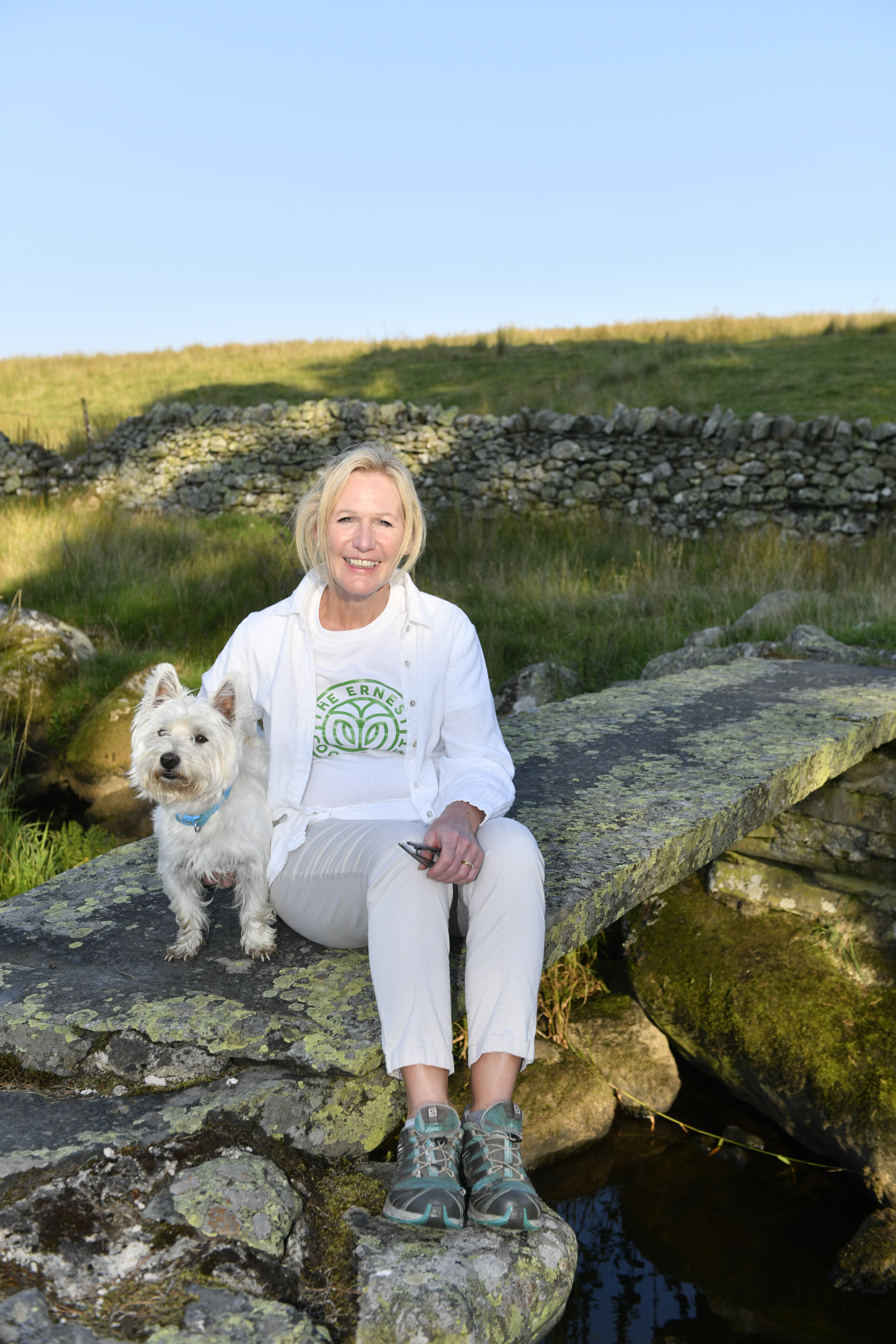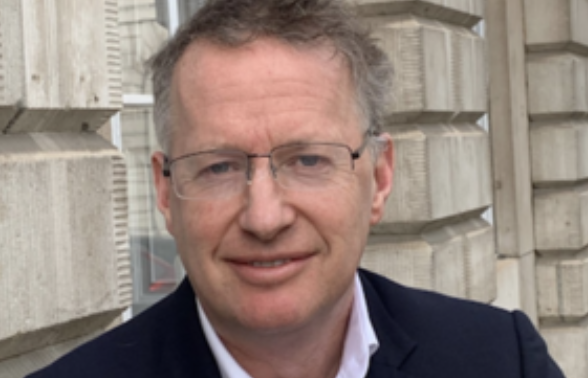The Ernest Cook Trust has made the unusual pivot from grant giver to service provider under the helm of Victoria Edwards, academic turned CEO. She talks to Melissa Moody about her leadership style and what prompted the change.
______________________________________________________________________
It’s not often I meet a CEO who hasn’t worked their way up within the charity sector, but Victoria Edwards is one of them. After her degree, she expected to go into policy work or civil service before discovering she “was not a civil service type person” and took a job in academia where the stayed for 25 years.
It gave Edwards the freedom to study what she was interested in, and “ended up, bizarrely, in policy work.” She got appointed to public boards to do with the natural environment, and in 2007 became a trustee for the Ernest Cook Trust.
When the previous chief executive retired, the chairman asked if she would help interview recruitment consultants and in that process she realised she was interested in the role. “I sat there and thought, I love my job at the university, I love being with young people but actually I feel like I’ve left my legacy already. I’m not going to do anything extra now until I retire and I still want to make a difference.”
After a call to the chair asking if there was a ‘smidgen’ of a chance she would be shortlisted, Edwards resigned from the board and joined the recruitment process. After a year-long process she was appointed as CEO.
A learning curve
Coming from a background outside the sector, Edwards found that there was a certain about of learning needed for the role, but other leaders were very willing to share their expertise.
“I think the most challenging thing for me was the complexity of the trust,” she explains. The trust has 3,500 acres it manages to profit spread over Britain, with the surplus income going into a pot. In addition, it has an investment portfolio in which its returns also go into a pot. That pot is then what the charity uses for its grant-giving and charitable work. “In essence, it’s a simple model but not if you’re managing it,” she adds, going on to explain that along with a team of estate managers, grant-givers, charitable initiatives in addition to the usual staff. “I think the most challenging is somehow making it all work at the same time.”
Time management became key, but it was reconciling values and respecting diversity that Edwards found key. “People are different,” she says. “Within our organisation we’ve got incredibly diverse personalities, values and cultures but also our stakeholder base is very diverse,” she adds.
This was part of the motivation for the changes made within the organisation. When Edwards joined, there was an education department but the organisation wasn’t doing any direct delivery – instead it was focused on things such as giving grants so school children so they could go to estates and explore, something that the trust could do itself. “They didn’t talk to each other,” Edwards says. But with her at the helm, that changed. “We did due diligence on other organisations but weren’t actually paying attention to what we were doing, and it was crazy. So we brought it all together in a much more cohesive way.”
The education department turned into the learning department and started using the Trust’s own land to educate children, thus turning from not just a grant-giving organisation to a charity that delivered its own programmes.
With Edwards leading the charity, and the delivery switch up, the trust has gone from being “a very traditional landed estate type charity” to one that is “trying to help people by learning outdoors.”
Originally, the trust would give grants to primary schools “for all sorts of things” and after some conversations Edwards and the trustees decided to focus on funding for outdoor projects, particularly for places that were more disadvantaged. This didn’t stop during the Covid-19 pandemic.
As part of its goals to get children outdoors, the trust collaborated with outdoor learning centres however during Covid-19, these centres income dried up. They relied on bookings from schools and of course, none of these things were happening so Edwards tried to find a way to get grants to them. “And then one night I thought, ‘are we missing a trick here?’ Rather than just giving them they money, can we get something that will be of benefit to beneficiaries?” So, the trust made forward bookings for disadvantaged children who have been stuck inside during lockdown, never been to an outdoors centre, ready for when things opened again and impact evaluations have proven that it’s had a positive impact on the children.
Edwards highlights one email she got from the grants manager who was running the programme, from a school who had been awarded a week of learning at one of the centres. “He said we sat the children down yesterday and we told them about the trip and a boy started crying he was so excited. And when we came into the same class the next morning and another boy was beaming, when we asked him why he was smiling he said it was because ‘we’re going to a farm in November Miss’.”
They also streamlined the grants process, to make things easier for the Trust’s staff and schools applying. Now they have an ‘Outdoor essentials’ pot that goes out in 500 grants, with schools only needing to fill in a form to apply. If they qualify, they get the money.
Changing times
When asked about her leadership experiences, Edwards says that it’s been really interesting for her with “a foot in both camps”. She explains that she often attends gatherings on the foundation and grant-giving side, as well has charities who are delivering.
“It’s culturally very different,” she adds. “The foundations are much more traditional, more conservative, a little more formal.” The university sector prepared her slightly for that, saying that for a sector working with young people it’s quite antiquated. “But it was still a bit of a shock coming into the Trust.”
However, she acknowledges that the sector is changing with more women in leadership roles and a younger demographic coming in making it much less formal and guarded. “I don’t want to rock any boats because I’m new to the sector but I feel [the grant-givers] were very nervous about letting the charity sector into their world. It was almost like we don’t want to meet the people we give money to because they might ask us for money, and I think those fears are beginning to break down.
“The trust and foundation world is recognising the need to actually meet and listen, and it’s actually safer to be well informed and understand.”
The formality of certain parts of the sector was something Edwards rebelled against. “I don’t believe a status,” she explains, describing how a gardener for the Trust asked how she would like to be addressed, Mrs, Doctor or some other variation. “I just said you can call me Victoria.”
This sort of leadership, a more informal, action-led type is a theme in her work, particularly during Covid. When Edwards came in, the whole IT system of the Trust needed modernising “I had someone still working in WordPerfect” she laughs. So by the time the pandemic rolled round, everyone had already been equipped with a laptop and had remote access to a server.
Her action-led mentality also led to an email sent to Gavin Williamson, secretary of state of Education, asked him what the Trust could do to help disadvantaged children. There was no reply, and they ended up doing their own thing, including giving schools grants for food and technology for the children, in one case depositing up to £5,000 overnight for one school to feed at-risk children. “I’m so proud of that,” she acknowledges.
In her own organisation, they set up a buddy system. Every member of staff had a number which went into a bingo machine, via this machine, every two weeks everyone would be paired up with another member of staff and they were supposed to check in on each other.
“We got members of staff who might never have met talking. You might get an apprentice ranger talking to someone in accounts and learning about them and their role. That was really valuable.
“It did make me realise that we are stronger together, and keeping everybody together and checking on them is really important.”
Talking to Edwards, it’s obvious she believes very strongly in what she does, and the team around her. “My dad was a merchant seaman, he was a captain and is probably the closest I had in terms of a mentor.
He said you always make sure the tip is watertight, and everyone is on board. And then you make sure the crew has had enough sleep and then you look afternoon. I think that sums it up. You are only as good as the people around you an that are doing the work and you’ve got to look after them.” An analogy I believe a lot of leaders can take something from.
Latest News
-
Around 50 staff lose their jobs as anti-poverty charity closes
-
Charity chief turns down MBE in protest over government’s ‘political choices’
-
Leadership diaries: Inside a week leading Magic Breakfast
-
King’s New Year’s Honours list pays tribute to charity leaders
-
Charity Leaders’ 2026 To Do List
-
Toy library charity to fight on despite closure fears
Charity Times video Q&A: In conversation with Hilda Hayo, CEO of Dementia UK
Charity Times editor, Lauren Weymouth, is joined by Dementia UK CEO, Hilda Hayo to discuss why the charity receives such high workplace satisfaction results, what a positive working culture looks like and the importance of lived experience among staff. The pair talk about challenges facing the charity, the impact felt by the pandemic and how it's striving to overcome obstacles and continue to be a highly impactful organisation for anybody affected by dementia.
Charity Times Awards 2023
Mitigating risk and reducing claims

The cost-of-living crisis is impacting charities in a number of ways, including the risks they take. Endsleigh Insurance’s* senior risk management consultant Scott Crichton joins Charity Times to discuss the ramifications of prioritising certain types of risk over others, the financial implications risk can have if not managed properly, and tips for charities to help manage those risks.
* Coming soon… Howden, the new name for Endsleigh.
* Coming soon… Howden, the new name for Endsleigh.
Better Society

© 2021 Perspective Publishing Privacy & Cookies











Recent Stories